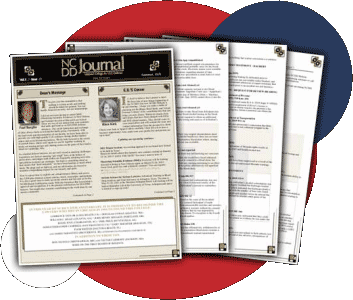- The ABA’s Concise Guide to Lawyer Specialty Certification
- Benefits to Become Board Certified - ABA Video
- Board Certified Members
- How to Become Board Certified in DUI Defense Law
- Apply for Certification
- Apply for Re-Certification Renewal
- Board Certified Senior Specialist
- Rules Governing Board Certification
- Preparing for the Exam
Juror Can't Focus- Rushed Into Judgment: Wrong!
Posted on July 12, 2018 in Uncategorized

The Court of Criminal Appeals (the highest court in Texas) rendered that a rushed juror who regretted his decision and cooperated with the defense in a motion for new
trial is not good enough evidence to overturn a verdict. In Colyer v. State, 428 S.W. 3d, 117 (2014), the jury foreperson testified that his verdict was not a true verdict because he was rushed into judgment. He detailed that the late time of day, distance to the parking lot, approaching inclement weather, and amount of time it took for the Judge to respond to the jury's notes, caused him to rush to a guilty verdict that he later regretted. He meticulously described how he received an emergency phone call from a doctor regarding his daughter. After this, and worried about her serious condition, he stopped deliberating. He hurriedly rushed the other jurors to judgment, agreeing with them without forming his own true opinion. This information later came to the court's attention. The defense made a proper motion for new trial. The trial judge denied it. (Why would the trial court want to reclog the docket?) The appellate court granted it based on juror misconduct, only to have it finally reversed by the Texas Court of Criminal Appeals.
The purpose of appellate courts is to right wrongs. This is clearly a miscarriage of justice. Trial stats and judicial efficiency do not justify injustice. This decision makes very clear that Texans cannot always rely on appellate courts to do the right thing. Having a new trial with a jury who is committed under oath to fairly and impartially deliberate is the law. There is no way to substantiate a forced and hurried verdict to make it legally proper, whether it ultimately turns out to be guilty or not guilty. Who will ever know in this case- without the defendant getting a new trial with a jury who renders an unbiased verdict based on the law and evidence, not "outside influences"? For the highest court to take it upon themselves to determine what is fair and just without hearing all the evidence, which is not their job, is a misappropriation of the appellate court's role. It demonstrates that a guilty conviction and judicial expediency is prized more in the system over a citizen's right to a fair day in court.
Clearly this was jury misconduct. People make mistakes. Honest people of courage admit them and correct the situation. Kudos to this jury foreperson. He did the right thing in honestly admitting his misconduct to ensure the defendant would get a fair, new trial. The highest criminal court in Texas is wrong. This may have just been another 'run of the mill' DWI case to the Texas Court of Criminal Appeals, but this was this citizen's life, reputation and denied justice. This erosion of trust and integrity in the system provides yet another reason why judges should not be elected. Texas needs to realign with states like Missouri, whose judges are peer reviewed chosen followed by retention elections. There desperately needs to be some measures which ensure qualifications of proficiency of the law, coupled with a proper judicial temperament analysis by those in the know, such as bar panels, to qualify judges for the bench.
Being a judge is one of society's most instrumentally important jobs for democracy to flourish. When one judge (the jury foreperson) admits a mistake, it is time for the other judges to fix it. That is their job, not their choice. Lesson to all: it is a sad day in America when someone's personal life and agenda determines another's fate. It is an even sadder day when the courts won't do their job to fix it.
Find an Attorney
Enter your city, state, or Zip code below to locate a qualified attorney who has demonstrated a commitment to defend those accused of DUI and related crimes.








